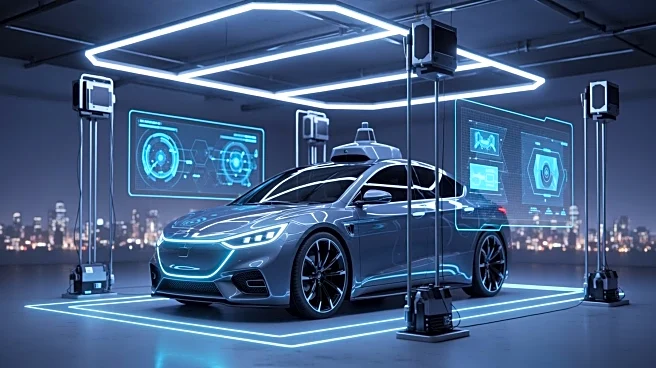What's Happening?
Uber, Lyft, and DoorDash are making significant investments in self-driving technology, despite these ventures currently being unprofitable. Uber CEO Dara Khosrowshahi acknowledged that self-driving cars
are a money-losing venture at present but emphasized the company's plans to expand the availability of driverless cars to increase rider demand. Similarly, DoorDash announced plans to spend several hundred million dollars more than previously planned on autonomous delivery technology, including its Dot robot, which navigates bike lanes and sidewalks for deliveries. Lyft is also investing in infrastructure, planning to build a depot in Nashville to support its partnership with Waymo. These companies are betting on the long-term potential of autonomous vehicles to transform their business models.
Why It's Important?
The investments by Uber, Lyft, and DoorDash in self-driving technology highlight a strategic shift towards automation in the transportation and delivery sectors. This move could significantly impact the gig economy, potentially reducing the need for human drivers and altering employment dynamics. The focus on autonomous vehicles also reflects broader industry trends towards innovation and efficiency, aiming to reduce operational costs and improve service delivery. However, the substantial upfront costs and current unprofitability pose risks, requiring careful balancing of growth and profitability. Success in these ventures could lead to increased market competitiveness and reshape consumer expectations in transportation and delivery services.
What's Next?
As these companies continue to invest in self-driving technology, they may face challenges related to regulatory approvals, technological advancements, and public acceptance. The development of infrastructure, such as Lyft's planned depot in Nashville, is crucial for the smooth operation of autonomous vehicles. Stakeholders, including investors and policymakers, will likely monitor these developments closely, assessing the viability and impact of these investments. The companies may also explore partnerships and collaborations to accelerate technological progress and address potential hurdles. The evolution of self-driving technology could lead to further innovations and shifts in industry standards.
Beyond the Headlines
The push towards self-driving technology raises ethical and legal questions, particularly concerning safety, liability, and data privacy. As autonomous vehicles become more prevalent, there will be increased scrutiny on how these technologies are integrated into existing transportation systems. The transition may also prompt discussions on the future of work, as automation could displace traditional driving jobs, necessitating new policies and support systems for affected workers. Long-term, the success of these initiatives could influence urban planning and infrastructure development, as cities adapt to accommodate autonomous vehicles.









